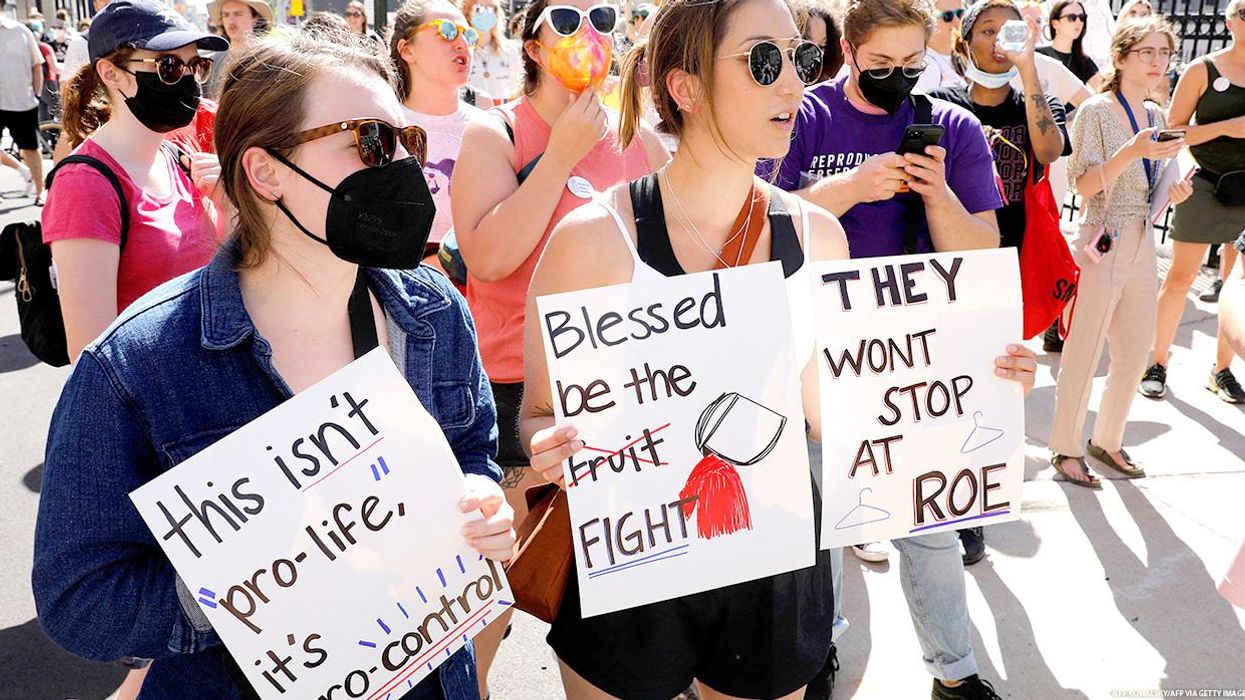A Michigan judge has struck down a state abortion ban from 1931.
After the Supreme Court overturned the landmark Roe v. Wade case, several states implemented "trigger laws" to ban abortion in their territory as soon as the ruling went into effect. Other states saw near century-old laws come back into effect, including a Michigan law from 1931 that criminalized abortions except in cases of life-threatening pregnancies.
Chief judge on the Michigan Court of Appeals, Elizabeth Gleicher, ruled that law violated the Michigan Constitution, striking it down on Wednesday. Gleicher wrote the law “compels motherhood” and denies a woman agency in the “shape of her present and future life.”
“A law denying safe, routine medical care not only denies women of their ability to control their bodies and their lives — it denies them of their dignity," she continued. "Michigan’s Constitution forbids this violation of due process.”
Invoking the words of constitutional scholar Laurence Tribe, Gleicher concluded that the law “forces a pregnant woman to forgo her reproductive choices and to instead serve as 'an involuntary vessel entitled to no more respect than other forms of collectively owned property.'"
Planned Parenthood of Michigan filed a lawsuit in May, successfully resulting in the suspension of the law. As a regular donor to Planned Parenthood, Gleicher reassured that she remained "unbiased and impartial" in her ruling. As Republicans control the Michigan Legislature, an appeal is possible. Spokesman Gideon D’Assandro confirmed “the House is reviewing the ruling."
Governor Gretchen Whitmer has filed a separate lawsuit asking the state Supreme Court to intervene and usurp the case from lower courts.
She said Wednesday: “With our rights still hanging by a thread, the Michigan Supreme Court needs to provide certainty."
Gleicher's decision comes just days before the Michigan Supreme Court is set to rule on whether or not to allow a new constitutional amendment to make it onto the November midterm ballot. If ratified, the amendment would solidify the right to abortion in the state.
The court will likely rule in favor of the the Reproductive Freedom for All bill, as a Michigan Bureau of Elections staff report recommends they approve the petition in support of the amendment, as it contained over 700,000 signatures.
The amendment would guarantee the "individual right to reproductive freedom, including right to make and carry out all decisions about pregnancy, such as prenatal care, childbirth, postpartum care, contraception, sterilization, abortion, miscarriage management, and infertility."
The amendment would also prevent law enforcement from prosecuting individuals who have abortions, or those who assist them, directly contradicting the 1931 law.



















































